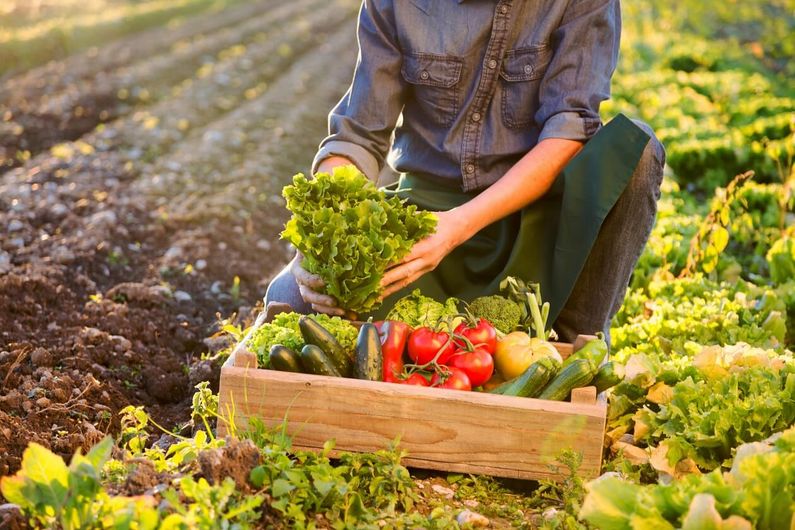Putting the food system in context
- Salle de presse
09/01/2022
- UdeMNouvelles
It’s one thing to innovate and find better ways to get healthy, eco-friendly and sustainable foods to consumers – and quite another to understand what leads there, an UdeM study finds.
Innovations that make the food supply chain more “responsible” – eco-friendly, good for public health, fairer to farmers – will come faster if the contexts that set the stage for them are better understood, according to a new Université de Montréal study.
And to that end, two Université de Montréal researchers have conducted a wide-ranging study of food supply systems in the global north and south – in Quebec and Brazil – that offers a blueprint for improving how millions of people eat and drink.

Pascale Lehoux
Credit: Amélie PhilibertPublished in the journal Sustainability, the study was done at UdeM’s School of Public Health by professor Pascale Lehoux and doctoral student Renata Pozelli Sabio, a Brazilian who previously did her master’s in management and bachelor’s in food science in her home country.
The researchers based their findings on 34 interviews with leaders of 30 organizations, equally divided between Quebec and the state of São Paulo, Brazil, that produce or supply local or organic food, pay attention to animal welfare or have socially oriented business models.
They were asked to describe innovative practices they’re engaged in, as well as contextual elements that foster a responsible approach to how they go about their business.
In Quebec, participants gave examples of innovation such as setting up meals-on-wheels programs for seniors, getting local or organic foods onto the menus at schools and universities, installing rooftop gardens, producing local honey, and buying non-perishable foods in bulk.
In Brazil, interviewees cited helping small farmers’ cooperatives help get their products to market, employing women in low-income areas to prepare lunch boxes of organic food to sell online, and holding workshops to where people discuss ways to sustain a healthier diet.
The participants then set those and other innovations in context, by theme:
- Some cited technological challenges (fresh food going bad at public markets due to a lack of cold storage rooms, ill-suited farm machinery that compacts and kills organic soils).
- Others listed biophysical and environmental inspirations and constraints (deforestration leading to a push for sustainable development, monoculture limiting honeybees’ access to wildflowers).
- Some cited economic factors (capitalist models in Brazil that gives priority to the marketing of “big and shiny” bananas regardless of how they were grown, or public markets in Montreal where local organic produce is overwhelmed by cheap imports).
- Political and institutional measures helped some take advantage of government programs to hire young people to deliver meals to seniors, while one-size fits-all regulations were deemed poorly designed to promote local fare.
- In São Paulo, the sociocultural and demographic context helped overcome city officials’ resistance to a federal law aimed at putting organic foods from family farms on school menus. Nevertheless, public awareness of eco-responsible farming remains very low.
- Consumer behaviour and diets are often income-driven; only the middle and upper-middle classes can support “a company that uses local labour, manages the land well, doesn’t use pesticides, and generates jobs and income,” as one Quebecer put it.
- Issues with the food supply chain can hinder responsible practices: for example, if carrots from small producers come washed but not peeled, that can be a turn-off to distributors; similarly, it can be hard to find organic bird feed for the chicken industry.
- Finally, several interviewees cited interpersonal relations as decisive in getting a responsible food system up and running, with trust-building from field to factory and kitchen to table being a key to success.
For policymakers, the implications of these observations and findings are multifold, the UdeM researchers believe.
“We’re telling them: ‘Here are some ways you can look at the contextual dimensions of a problem and figure out how to encourage everyone in the food systems to act more responsibly,’” said Lehoux.
“You can finance programs that support that, you can regulate to better harmonize the work of major and small players alike, you can fund research to advance the cause, you can promote awareness and build consensus around responsible food practices,” added Sabio.
"What context shows us is that it's not just one way that will get us where we want to be – there are many," Sabio said. "Right now, the dominant food system has priority, but that's changing. A more responsible food system will emerge sooner than later – we just have to understand how."
About this study
“How does context contribute to and constrain the emergence of responsible innovation in food systems? Results from a multiple case study,” by Renata Pozelli Sabio and Pascale Lehoux, was published June 25, 2022 in Sustainability.
Media contact
-
Jeff Heinrich
Université de Montréal
Tel: 514 343-7593













